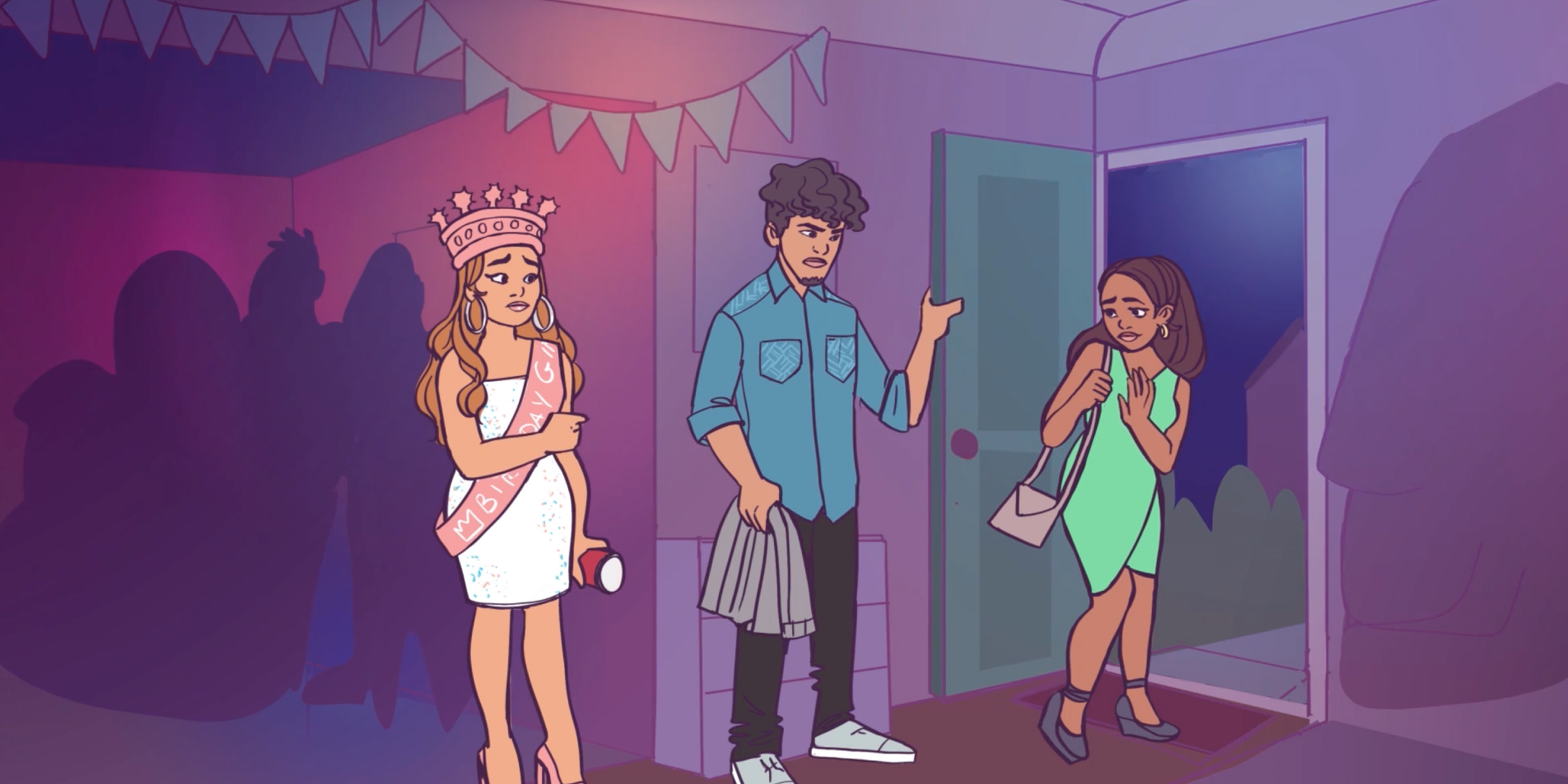“He told me he felt insecure because of his past relationships and that he would change his behaviour”
Getting support
Hope and Donte’s story was created by young people in Oxfordshire schools and it illustrates an example of an unhealthy relationship. SAFE! often works with young people like Hope who need support to rebuild their confidence and self-esteem after a damaging relationship.
If can be hard to ask for help if you think that you might be treating someone badly in a relationship. If you recognise that the way that you have behaved is wrong then this is the first step to making changes. Sometimes the ways that we have been treated in the past can impact the way that we treat others, but this shouldn’t excuse the way you choose to behave. Remember, your behaviour is a choice which you can learn to control. Talk to a trusted adult at home, school or college about how you are feeling.
You can get immediate help from Childline on their website childline.org.uk or by calling on 0800 1111.
The law and domestic abuse relationships for young people
In April 2013 the domestic violence definition was strengthened to include coercion and control in romantic relationships for those 16 years and older. Each local police force has developed their own policy for intimate relationships for those under 16 years old. In the Thames Valley area, where SAFE! works, the policy is that a domestic incident includes intimate partners irrespective of their age. It is a crime that can affect anyone regardless of their gender or sexual orientation. Therefore, anyone over the age of criminal responsibility (i.e.10 years old) can legally either be the victim or the perpetrator of coercive and controlling behaviour.
In July 2020 the Domestic Abuse Bill was voted through by the House of Commons. The Domestic Abuse Bill once implemented as Law will give more rights to victims.

What to do if I am jealous
- Acknowledge and name your feelings of jealousy.
- Try to understand where the feelings of jealousy come from.
- Speak to a trusted adult about your feelings of jealousy.
- Give your boyfriend or girlfriend the space to be themselves, and use this extra space to develop your own interests.
- Try the elastic band trick. Put an elastic band around your wrist and each time you notice a feeling of jealousy creep up, acknowledge it and ping the elastic band.
- Try to talk to your boyfriend or girlfriend about the feelings of jealousy. If you can get into the habit of talking about them as soon as you notice them, it will control the negative spiral of jealousy.
How to trust again, if you have been hurt in the past
- Embrace vulnerability. Don’t close up your emotions, it won’t help you.
Building a protective wall around your emotions will mean you won’t be able to talk about your feelings in the future. - To practice feelingvulnerable, speak to a close friend or family member about how you have been hurt in the past.
- Be honest with your boyfriend or girlfriend about your previous experiences and how you now have issues with trust.
- Acknowledge your feelings, ignoring them will not help you move on in a positive way.
- Before you learn to trust others, you need to learn to trust your own judgements and instincts.
Other websites for information, support, and help
- If your sibling or another family member is sick or has additional health needs then you may feel like you have extra responsibilities or that your life is different from your friends.
- There is support information and advice on carers.org.
- If you have to care for a brother or sister, youngsibs.org.uk is a great website where you can speak to other people in a similar position to you.
- If you are feeling low or under pressure it can be easy to take risks online or lose yourself in the online world.
Most areas run support groups for young carers ask your school or parent to make a referral to your local group.

